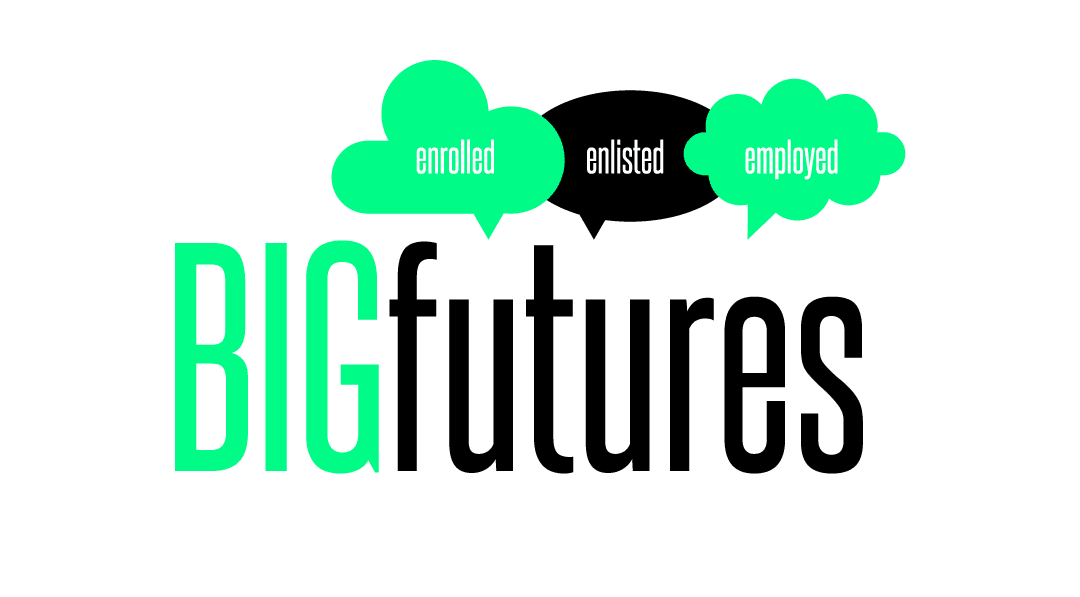
GETTING THEM DREAMING
As the primary way of defending potential, Big Brothers Big Sisters’ priority is creating positive outcomes. The biggest goal is helping children successfully transition into adulthood.
But what happens when Littles graduate from the program and possibly away from their Bigs at age 18? How do they continue making that transition successfully if the same problems that got them into BBBS still exist? Or worse? They may be able to vote or enlist, but no one looks back at age 18 and thinks they were an adult yet.
That’s why the Big Futures Program started.
It actually started after BBBS Northeast Indiana Chief Executive Officer Josette Rider and her Little Sister had already spent 14 years together. The Little was already preparing to graduate high school and the program, but now she was basically homeless and worried about what would happen to her relationship with her Big. Rider wouldn’t give up, and with the help of friend and many-time Big Brother Rick McCampbell, an idea started.
When the program initiated in 2014, 90.9 percent of Allen County, Indiana students had graduated the previous year. There were 19,000 Indiana teens between ages 16-19 who weren’t in school or high school graduates, and there were 26,000 Indiana teens between 16 and 19 who weren’t in school or working.
That told Rider there was a bigger problem.
“The studies are showing us that kids are maturing older, more are coming from higher-risk situations with a multitude of risks so they get a later start and momentum in life,” Rider said. “And so, if that’s true of kids in general, is it true for our kids? Doubly-so, triply-so. So what are we going to do about it?”
Rider figured if 60 percent of the BBBS Littles graduated successfully and were fine on their way to college or adult life, what would it take to get that to 65 percent? What about the rest? She also accepted those changes were not necessarily the responsibility of the Bigs.
“The difference is access and support, but a Big can’t do all of this heavy lifting,” she said. “Their job is not to fix a kid because kids aren’t broken. We have been constantly telling Bigs, your job is to have fun and walk alongside.”
So with the help of a panel of educators, college professors and administrators, Rider said BBBS would do the heavy lifting by providing the personnel and a game plan to give the Littles more opportunities and access to college and professional preparation. The program targets Littles from the eighth grade through their senior year of high school.
Besides group match activities more suited to their demographic, Littles were given a series of surveys to establish baselines. They are offered PSAT, SAT and ACT preparation classes and sign release of information forms so BBBS match specialists can work with guidance counselors to make sure the students are maintaining 21st Century Scholar requirements and continue on track for graduation. That includes college visits throughout the state on weekends or over spring break.
There are also job shadow and internship possibilities, academic coaching, monthly workshops, financial aid instruction and college, career and military presentations. If the kids come up with other ideas, they can be explored here.
With funding from local grants, the program started with 174 youth in 2014. In 2020 there were 299, and 31 of 32 seniors graduated high school with 23 advancing to college, five to the job world and three signing up for military service. Of the 299, 43 attended at least one college visit and 15 went to two or more.
BBBS also hired specific staff to concentrate on the Big Futures program.
“I like working with older kids because I feel like they are more open, more honest depending on the situation,” said Match Support Specialist Kayla Wright. “They are going to tell you how it is, and they know when someone is being genuine with them. I just feel like it’s a lot easier to build relationships and make connections with older kids. I like being able to help them achieve their goals and get on track to graduate.”
It also helps that staff members have a chance to build long-term relationships with both Bigs and Littles.
“I love Big Futures because we can be more hands-on with the Little as far as getting out in the community,” said Program Manager Enda Jones. “This really opens up opportunities for them to be exposed to the different things our community provides.”
The real goal, Jones said, is to get them dreaming, and then convince them to believe in it.
“Let us help them get on the path to that,” she said. “More than anything, we’re offering extra support.”
If you’d like to find out more about being involved with Big Brothers Big Sisters of Northeast Indiana as a potential Big, volunteer or donor, call 260-456-1600 or go to bbbsnei.org.



